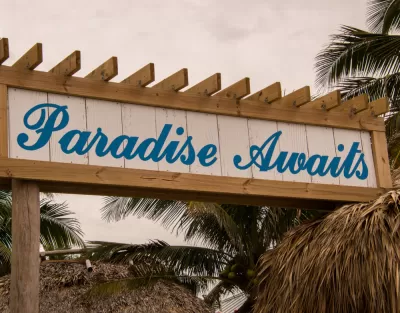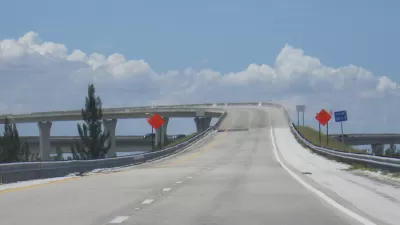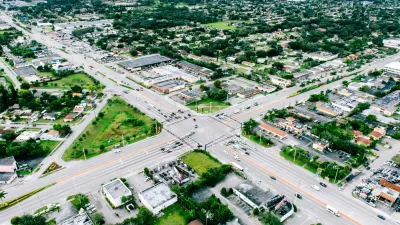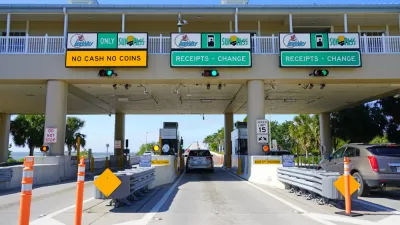The state of Florida is moving forward with the Multi-use Corridors of Regional Economic Significance (M-Cores) plan to build several new toll expressways in rural parts of the state.

Daniel Herriges does not mince words when assessing a plan advancing through the Florida Legislature "that would construct three new toll roads totaling more than 300 miles, and would divert over $1.3 billion from the state's general fund to pay for them."
"These roads would mostly parallel existing Interstate 75 through parts of the state that are rural and very sparsely populated. The proposed routes pass through what are now cattle pastures, citrus groves, and pine forests. The largest city on the longest of the three routes—Perry—has fewer than 10,000 inhabitants."
So how is the state justifying the need for such an immense expenditure on new roads? Herriges doesn't think it can. "There is absolutely no present, looming problem that these toll roads would solve. None."
While dispensing with potential pro-road project arguments like existing congestion and need for Hurricane evacuation capacity, Herriges gets to the fundamental argument of the article: "When we talk about the need to 'prepare' for growth with a brand new road deep into a rural area, we're glossing over a huge chicken/egg problem." The state of Florida doesn't have to grow in this mostly rural setting, according to Herriges, but there are some already wealthy interests who stand to benefit if it does.
After winning nearly unanimous approval from the Florida State Senate, the plan is now moving to the House. Herriges also recommends reading an opinion piece by Thomas Hawkins on the subject of the Multi-use Corridors of Regional Economic Significance (M-Cores) plan, written for the Gainesville Sun.
FULL STORY: Want to Be Prepared For Future Growth? Do the Opposite of This.

Planetizen Federal Action Tracker
A weekly monitor of how Trump’s orders and actions are impacting planners and planning in America.

Congressman Proposes Bill to Rename DC Metro “Trump Train”
The Make Autorail Great Again Act would withhold federal funding to the system until the Washington Metropolitan Area Transit Authority (WMATA), rebrands as the Washington Metropolitan Authority for Greater Access (WMAGA).

The Simple Legislative Tool Transforming Vacant Downtowns
In California, Michigan and Georgia, an easy win is bringing dollars — and delight — back to city centers.

The States Losing Rural Delivery Rooms at an Alarming Pace
In some states, as few as 9% of rural hospitals still deliver babies. As a result, rising pre-term births, no adequate pre-term care and "harrowing" close calls are a growing reality.

The Small South Asian Republic Going all in on EVs
Thanks to one simple policy change less than five years ago, 65% of new cars in this Himalayan country are now electric.

DC Backpedals on Bike Lane Protection, Swaps Barriers for Paint
Citing aesthetic concerns, the city is removing the concrete barriers and flexposts that once separated Arizona Avenue cyclists from motor vehicles.
Urban Design for Planners 1: Software Tools
This six-course series explores essential urban design concepts using open source software and equips planners with the tools they need to participate fully in the urban design process.
Planning for Universal Design
Learn the tools for implementing Universal Design in planning regulations.
Smith Gee Studio
City of Charlotte
City of Camden Redevelopment Agency
City of Astoria
Transportation Research & Education Center (TREC) at Portland State University
US High Speed Rail Association
City of Camden Redevelopment Agency
Municipality of Princeton (NJ)





























